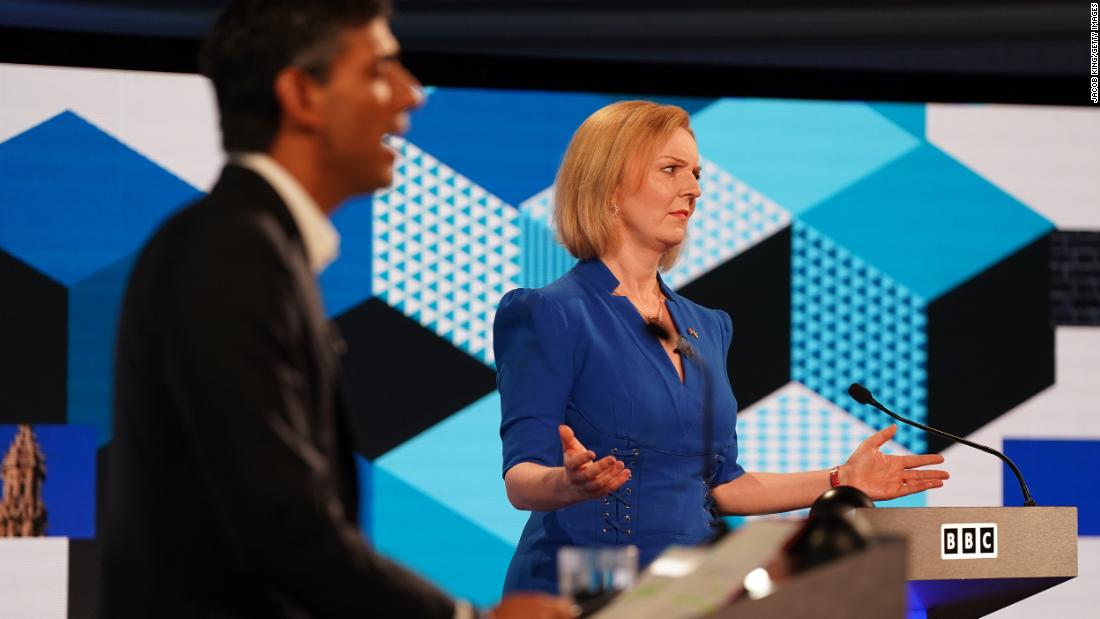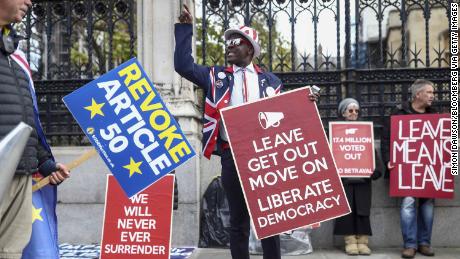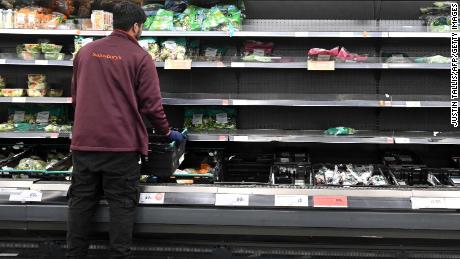
For Sunak, a committed Brexiteer, he could hardly have said anything else. But Truss, who campaigned for the UK to remain in the EU, has reinvented herself as a Brexit convert, no hint of heresy can be permitted. Both are locked in the battle to win over the members of the Conservative Party, who are among the most committed Brexiteers of anyone in the country.
The inconvenient truth, as the head of the port of Dover has confirmed, is that Brexit has indeed contributed to the chaos. With the UK now relegated to third country status outside the EU, what was once a relatively seamless process at the border has been swapped for a significant processing burden with the potential for major hold-ups.
Legal experts agree: “Pre-Brexit there was no requirement for your passport to be stamped,” says Catherine Barnard, professor in European law at Trinity College, Cambridge. “This meant when things were busy at Dover, all you had to do was wave your passport. Finding a page and physically stamping a passport obviously slows things down and can really back things up,” she adds.
And that’s indeed what happened last week — huge lines of trucks and cars which choked up roads in the county of Kent and caused misery for fed-up families stuck in their vehicles for hours.
Yet the wannabe PMs’ reluctance to speak ill of Brexit is unsurprising. It was their Conservative Party under Johnson that finally broke years of Brexit deadlock in 2019, winning a parliamentary majority in a landslide election on the promise to “Get Brexit Done” with an “oven-ready deal” that he’d personally secured after years of tortuous negotiations with Brussels.
“While it is true that Brexit is done and the steps we have taken to leave the EU are irreversible, the consequences of Brexit remain,” says Dominic Grieve, a former Conservative member of parliament who previously served as attorney general.
The OBR also predicts that trade will be reduced by 15% in the long term and that new trade deals with non-EU countries “will not have a material impact, and any effect will be gradual.”
Brexit, the most significant political event in modern British history, has been notably absent from the discourse surrounding the race to succeed Johnson. Beyond vague references to taking advantage of Brexit’s benefits and the candidates trying to one-up one another’s Euroskeptic credentials, even the economic impacts are not being mentioned, despite the cost-of-living crisis that Britons are currently suffering.
There are undoubtedly things that the government can do outside of the EU that will provide economic benefits in some areas. Truss, in particular, is talking up the prospect of tearing up EU regulations that the UK has inherited from Brussels to free up cash that could be used to invest in British infrastructure.
“The government could roll back regulations around how things like pension funds and insurance are managed that would create the potential for that money being invested in infrastructure projects,” says Vicky Pryce, former joint head of the United Kingdom’s Government Economic Service.
She adds, however, that “those benefits could well be outweighed by all the other negative things that may be happening in the short-to-medium term, like the lack of productivity hampering growth and the extra costs to businesses and consumers because of Brexit.”
Moderate Conservatives are quietly despondent that, on one hand, Brexit badly needs fixing, but on the other, no one is brave enough to say it for fear of a backlash from voters, their fellow Conservative MPs and the right-wing media.
“The base won’t tolerate anyone slagging it off. Even though they privately know it’s not working as any envisaged,” says an influential Conservative MP.
“Anyone daring to suggest it’s suboptimal gets the MacArthurist Brexit treatment. The sad thing is there are ways of fixing it, but no one has the confidence to admit that,” the MP adds.
There are ways that the impact of Brexit can be limited, however most of them involve closer association with the EU, which is politically toxic for Conservatives appealing to their own base right now.
What’s worrying other moderates is that Truss — the most likely to win the contest — campaigned against Brexit in 2016. She has since been one of the most outspoken Euroskeptics in government and has won the support of some of the most ardent Brexiteers.
As a result, those who fear Brexit’s impact on the UK getting worse think that, in order to keep her Brexiteer supporters, Truss is very unlikely to take a softer tone.
Sunak, on the other hand, could improve relations with Europe due to his long-standing Brexiteer credentials. However, even his supporters think Truss has successfully outflanked him to such an extent that even if he wins, he won’t dare risk the ire of backbenchers rebelling.
The opposition Labour Party has noticed the Conservatives’ Brexit paralysis. Earlier this month, Labour leader Keir Starmer gave a speech in which he promised his government would “make Brexit work.” However, he was clear that Labour would not rejoin any of the EU institutions, single market or customs union.
Of course, leaving the EU was an entirely democratic decision and it is reasonable that the next Prime Minister, whoever that might be, is committed to keeping the UK separate from the bloc.
It is, however, to the detriment of the debate that neither is willing to acknowledge the impact it is having on the country. And for all that avoiding the Brexit question might be effective when appealing to their base, the next PM could find themselves coming unstuck when they face the wider public at the next general election. Especially if food and energy bills keep soaring.

